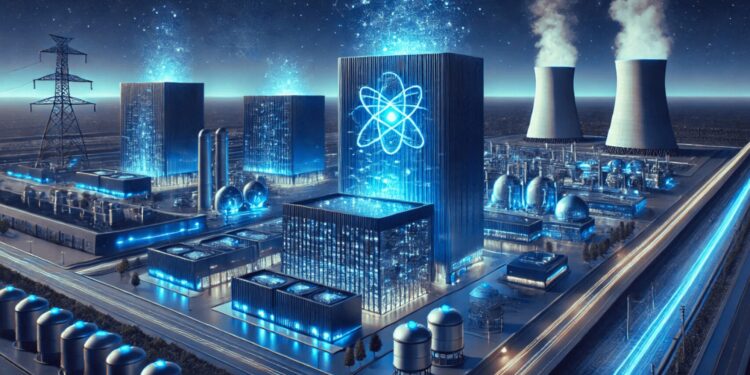The insatiable energy demands of artificial intelligence are pushing tech giants to explore a powerful, yet historically controversial, solution: nuclear energy. Companies like Microsoft, Google, Amazon, and Meta are making significant investments and striking deals with nuclear energy providers, marking a pivotal shift in how the industry plans to fuel its rapidly expanding AI infrastructure.
The surge in AI development has led to an unprecedented increase in data center energy consumption. Traditional renewable sources like solar and wind, while vital for decarbonization goals, often struggle to provide the continuous, high-density power required by advanced AI models. Nuclear power, with its ability to deliver consistent, carbon-free baseload electricity 24/7, is emerging as an increasingly attractive option.
Microsoft has been at the forefront of this movement, signing a 20-year agreement with Constellation Energy to restart Unit 1 of the Three Mile Island nuclear plant, which will be rebranded as the Crane Clean Energy Center. This move, set to provide hundreds of megawatts of carbon-free power by 2028, underscores Microsoft’s commitment to becoming carbon-negative.
Not to be outdone, Google has partnered with Elementl Power on three advanced nuclear energy projects, each projected to produce 600 megawatts. This follows an earlier agreement with Kairos Power for small modular reactors (SMRs), highlighting Google’s multi-pronged approach to securing sustainable energy for its AI operations. Amazon, too, is heavily investing, committing over $500 million to develop SMRs and securing a long-term agreement with Talen Energy for power from its Susquehanna nuclear facility. Even NVIDIA, a key enabler of AI with its powerful chips, has backed Bill Gates’ nuclear energy firm TerraPower.
This strategic pivot towards nuclear energy by Big Tech signals a growing recognition that AI’s immense power needs necessitate reliable, always-on, and clean energy sources. While challenges related to cost, regulatory hurdles, and public perception remain, the urgency to power the AI revolution and meet ambitious climate goals is driving these companies to embrace a technology once largely sidelined. The coming years will likely see further acceleration in nuclear energy investments as the digital and energy transitions converge.










![Online Scam Cases Continue to Rise Despite Crackdowns on Foreign Fraud Networks [Myanmar] Online Scam Cases Continue to Rise Despite Crackdowns on Foreign Fraud Networks [Myanmar]](https://sumtrix.com/wp-content/uploads/2025/06/30-12-120x86.jpg)




